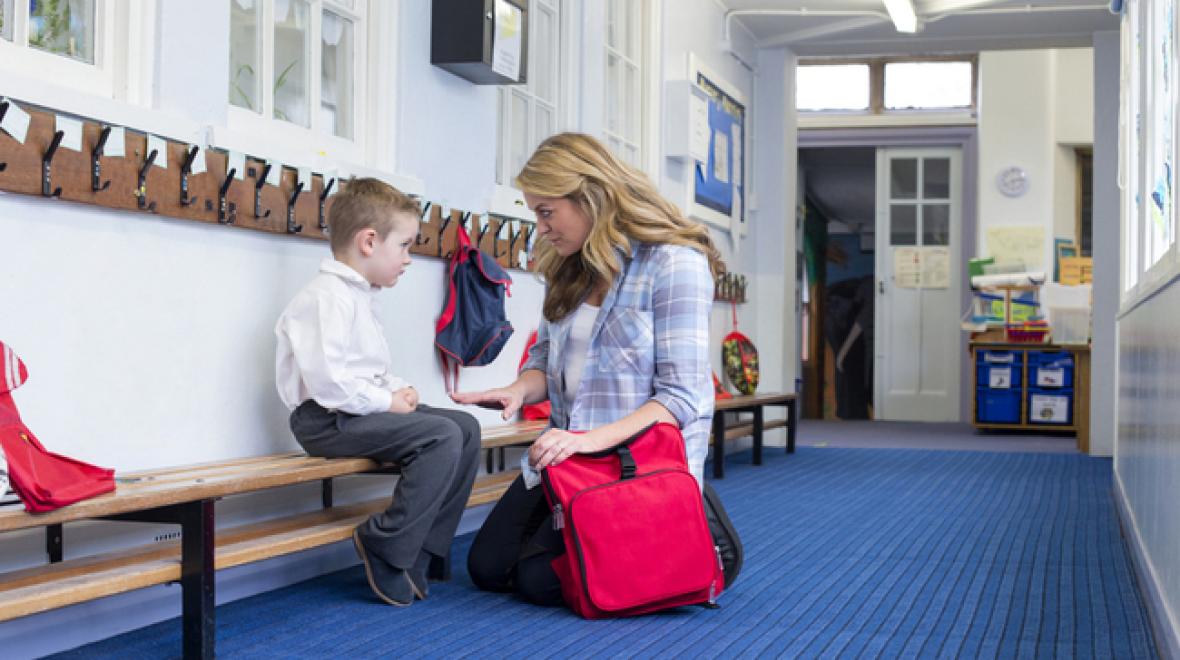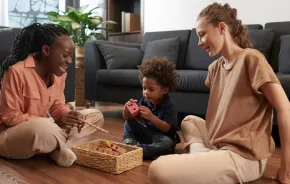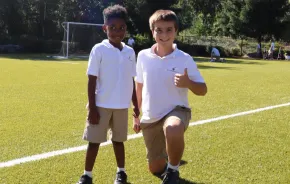
I'd heard how challenging kindergarten could be. But I still felt more than prepared for elementary school after sending my son to a preschool that emphasized listening, circle time, structure and respecting friends. The last place I expected my son to go in his new school was the principal’s office.
The day I got the call I couldn’t believe it. But it was his voice, calling from the principal’s phone. At free play he and another boy practiced writing notes. They laughed about ways to invite each other for a playdate. Finally, their writing culminated in:
“If you don’t come to my house for a playdate, I’ll kill you.”
Their teacher saw the uncontrollable laughter, read the note and sent them straight to the principal.
Even though I'd never let my son play with guns and banned words like "kill" from our home, he’d still written the word in a note. Once the shock receded, it gave me time to address the issue. Here’s how I responded:
- Initiated a discussion about words. His father and I had always told him what the word “kill” meant — one person taking another person’s life. But once he understood just how serious it was, we repeated the lesson. I researched ways to discuss the word, without scaring him, but made it clear that he couldn’t use that word at school. I interpreted the sentence he wrote, explaining that it sounded like a threat. The issue of words taken literally is a conversation we’ve continued.
- Discussed these topics at the dinner table every night. Around this time, our meal times had gotten rather loose. Sometimes we ate out or even in in the living room. After this incident, we began to eat consistently around our dining table. As a result, our conversations grew deeper. His father and I began bringing important issues to the table, but also shared the mundane details of our days. At some point during the week, our son shared important events from school, too.
- Banned screen time. Yippee! I’d looked for my opportunity to do this for a while. I’d grown so weary of his arguments after the timer went off and he had to return the iPad to me. Quite naturally his response was to shake his head and say, “Okay, I’ll watch TV instead.” But I got to say “No. No screen time at all.” In the beginning he paced and complained. He claimed he didn’t know what to do. But in the end, he gravitated to the table with his Pokemon cards and drew. We made a board-game style drawing on butcher paper, pretend cards of characters he doesn’t yet have and actions shots of his favorites interacting. He loved the project. We bonded. We talked even more.
- Took a break from playdates. The pressure of planning future playdates overwhelmed us both. Who would we contact next? Had we had enough this week? If not, why not? Why had his best friend been invited to another boy’s house when he hadn’t? I’m convinced the pressure he felt erupted in that note. Weeks after this, I saw the other boy passing out scraps of paper to kids at their lockers. He said, “It’s my mom’s phone number. Call if you want a playdate.” But my son seemed relieved to know what he’d be doing each evening.
- Apologized to his teacher and checked-in regularly. The following day I went with him so that he could apologize to his teacher about the note. She told him that when she sees words like "kill," she gets scared. Hearing her say this surprised him. He hadn’t considered his teacher could get scared. I also got to ask her about his behavior the rest of the time. She confessed he’d resisted most things, which I hadn’t known. So I checked-in with her regularly and always let him know that I would. Predictably, his behavior in the classroom improved knowing we had a standing date.
That day was difficult but it was an important moment for my family. It taught my son the power of his words — and that there is no such thing as joking about violence in school. It also helped me understand that my role as his parent was to reinforce this lesson.
After that day he listened with an intensity I’d never seen. It was the beginning of open, honest dialogue about an important issue that all began with the words he chose to write in a note.











